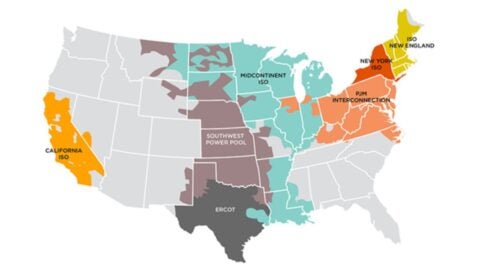Lindzen's Lame Claims
ignoratio elenchi n.
A logical fallacy of presenting an argument that may in itself be valid, but has nothing to do with the proposition it purports to prove. Also known as “irrelevant conclusion”. [Lat. ignorance of refutation.]
Richard Lindzen, MIT’s most famous (infamous?) science denier, receives our Ignoratio Elenchi award this week for his article "No Such Thing as Perfect Temperature" in Newsweek International. Before critiquing the article’s logical fallacies, it’s worth noting what Lindzen concedes:
"There has been a net warming of the earth over the last century and a half, and our greenhouse gas emissions are contributing at some level. Both of these statements are almost certainly true."
Even Lindzen no longer questions that greenhouse gas emissions are causing global warming. Now let’s examine his other claims.
Lindzen says that climate can’t be predicted with any more accuracy than weather. This is simply wrong. Weather and climate prediction are very different problems. Weather prediction is strongly hampered by lack of real-time data to base the models on – not so with climate prediction.
Lindzen then argues that global temperature change is normal. "The earth is always warming or cooling by as much as a few tenths of a degree a year." The trick phrase in this sentence is "warming or cooling", implying that over time the temperature stays the same. In fact, the Earth is steadily warming, and a few tenths of a degree per year add up to several degrees over a period of decades.
"What of it?" Lindzen asks. There is no "optimal temperature" so there’s no reason for concern about rising temperatures. In this case, Lindzen’s premise is wrong as well as his conclusion. Just because global temperature has risen in the past doesn’t mean we shouldn’t be concerned about warming now. There’s a big difference between then and now. Today we have 6 billion people on Earth who will suffer the consequences of global warming. Coastal cities and low-lying islands will be covered by rising seas, drought will cause disease and famine, and more. These are not vague threats for the future. We are beginning to see these effects today.
Lindzen claims these threats are overblown, but his "proof" is absurdly flimsy. He says that since sea levels haven’t risen much in the past, there’s no reason to think they’ll rise in the future – an Ignoratio Elenchi fallacy. A far better predictor of rising sea levels is the melting ice at the poles – the phenomenon that’s causing the rising sea levels.
The most egregious part of Lindzen’s article, however, is his flat-out erroneous quoting of sources. He says, "There is no evidence, for instance, that extreme weather events are increasing in any systematic way, according to scientists at … the Intergovernmental Panel on Climate Change…" Here are some direct quotes from the IPCC’s fourth assessment, released this year: "Widespread changes in extreme temperatures have been observed over the last 50 years." "The frequency of heavy precipitation events has increased over most land areas…" "More intense and longer droughts have been observed over wider areas since the 1970s…" "There is observational evidence for an increase of intense tropical cyclone activity…"
Lindzen ends by saying that Roger Revelle, Al Gore’s mentor, concluded that "the evidence of global warming thus far doesn’t warrant any action unless it is justifiable on grounds that have nothing to do with climate." Revelle died in 1991. Even assuming that Revelle actually said this, how odd to cite a statement from 1991 to advance a scientific argument in 2007. Are you as dumfounded as I am?
Lindzen doesn’t give the source for this paraphrase, but here’s a source you can check: "Global Warming: What My Father Really Said" by Carolyn Revelle Hufbauer. She says that Roger Revelle "remained deeply concerned about global warming until his death in July 1991", and advocated a variety of actions to combat it.












